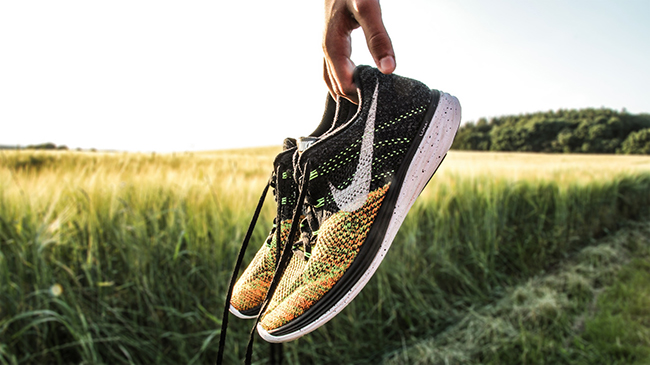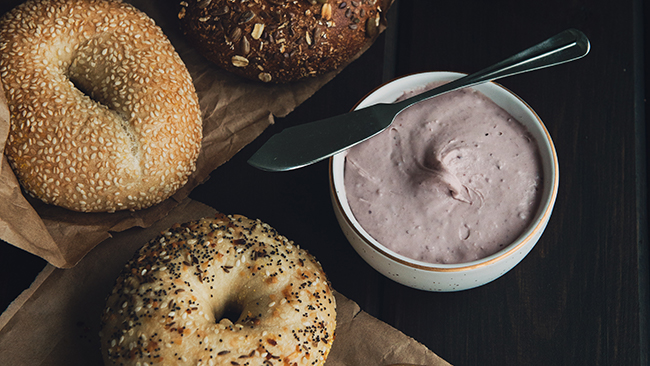There is an infinite number of running events to choose from in Wales, but how do you prepare for your first-half marathon?
.embed-container { position: relative; padding-bottom: 56.25%; height: 0; overflow: hidden; max-width: 100%; } .embed-container iframe, .embed-container object, .embed-container embed { position: absolute; top: 0; left: 0; width: 100%; height: 100%; }
The adrenaline is pumping. People from all over Cardiff are cheering you on, clapping their hands.
The last mile seems endless.
But there it is: the finishing line. You can already imagine the medal around your neck. Only three more steps … two … one. You did it!
Already you say to yourself: “Where can I sign up for next year?”
Rory Coleman has more than a 1000 marathons under his belt: “I love the freedom that running brings. I love the whole motion of running, I love the way it makes me feel,” he says.
“I’ve never thought to myself ‘I hate this’. I just enjoy the whole going sort of to another place.”
According to Rory, “We spend a lot of time behind our desk and actually as a nation we’re becoming really unhealthy. Running is a really good way of getting fit, living a long time and actually enjoying yourself.”
Running a half-marathon, or 13.1 miles, is a serious accomplishment. It requires serious training but the rewards are enormous.
If you never ran one before, the task can seem daunting at first. However, it is not as hard as it may seem – if you know how to prepare for it at least.
What gear do I need?
You do not need much to start running. Buying a good pair of running shoes is a good place to start. There are many types of running shoes and choosing the right pair can be difficult. It is a good idea to visit a specialised store in Cardiff, such as Run and Become, where you can get properly assessed.
“Getting the right shoes which are the right size is really important so you don’t get blisters,” says Rory, one of the UK’s leading ultra-marathon coaches and holder of nine Guinness World Records.

Then, find some clothes that work for you. You do not need to buy clothes from the most expensive brands, but choose clothes you feel comfortable in.
“You don’t necessarily have to buy the top of the range, you can get good bargains online. But find some clothes that really work and train in them,” says Rory.
How to train?
If you are a running your first half-marathon, it is a good idea to start training 12 weeks before the date of the race. Print out a training schedule and stick it on the fridge. This will help you set goals for yourself.
Rory, a personal trainer who has run more than 200 ultra-marathons, says “training is everything.
“It’s about training your body, it’s training your feet not to get blistered and getting used to getting up when really you don’t want to and actually trying to break down some thresholds – those thresholds of human endurance that you’re going to actually meet during the marathon itself,” says Rory, who lives in Cardiff.
(function(d){var js, id=”pikto-embed-js”, ref=d.getElementsByTagName(“script”)[0];if (d.getElementById(id)) { return;}js=d.createElement(“script”); js.id=id; js.async=true;js.src=”https://create.piktochart.com/assets/embedding/embed.js”;ref.parentNode.insertBefore(js, ref);}(document));
How to stay motivated?
On a rainy day, you may find yourself hugging your pillow instead of putting your running shoes on. Motivation can be hard to find at times, but there are a few things you can do to ensure you will be running your first ever marathon.
Goal setting is important. Once you decide that you are ready to train for your first half-marathon, pick a race and sign up for it as soon as possible. Now you have a clear objective.
Have an idea about what time you are aiming to run during training sessions and try to improve it the next day. Rory recommends writing down your time on a piece of paper and putting it on the fridge.
This will motivate you to run faster and better every time you go out. A little competition with yourself can be healthy.
“Everything is down to investment: the more time you put into it, the better time you’re going to have in the race itself,” Rory says.
Another good strategy to stay motivated to run with friends. A recent study published in the scientific journal Nature Communications suggests that exercising with friends can positively influence your performance. The study found that running with friends help us stay motivated. It also encourages competitiveness.
If none of your friends share your enthusiasm for running, there are many clubs in Cardiff you can choose from which will welcome you with open arms.
.embed-container { position: relative; padding-bottom: 56.25%; height: 0; overflow: hidden; max-width: 100%; } .embed-container iframe, .embed-container object, .embed-container embed { position: absolute; top: 0; left: 0; width: 100%; height: 100%; }
Running with music?
Running for mile after mile can become monotonic. But various scientific studies suggest you should take your iPod with you when exercising.
Costas Karageorghis, reader of sports psychology at Brunel University, argues that some people can actually enhance their performance by listening to music. In his latest book, Inside Sport Psychology, he claims that listening to some of your favourite tunes can boost your running performance by up to 15%.
“I listen to a whole lot of music, and probably the same music over and over again,” says Rory. “I love Pendulum, a bit of drum and bass … not bad for a guy of 56!”
“The music helps you go to a different place, somewhere where there isn’t the pain, there’s only pleasure.”
What to eat and drink?
Preparing your body to run 13 miles includes adjusting your eating habits before the day of the race.
Joanne Jackson, a nutritional therapist at Whole Nutrition in Cardiff, says “To run a half marathon, you need to put in months of training. You also need to develop a nutrition plan that fuels your workouts.”
“Carb-loading is necessary when you are running for more than 90 minutes. It will have a positive impact on your race performance,” she says.
Rory, who has run The Marathon des Sables – branded ’The World’s Toughest Footrace’ – 14 times, says he starts eating jacket potatoes a few days before the race to load up his muscles.
Joanne’s advice is to “eat a carb-rich, low-fibre, easy-to-digest, familiar breakfast the morning of the race.
“For example, a slice of toast with banana and peanut butter, a small bowl of porridge, or a bagel with a tablespoon of light cream cheese.”

It is also a good idea to fuel your body during the race. You can do this by taking some energy gels and energy chews with you.
When Rory runs a marathon he consumes two energy gels: one at four miles and one at eight miles.
“And maybe a tube of pastilles as well, they’re really quite nice to eat along the way,” he says.
Joannes says: “Fuel at regular intervals and before you need to. If you don’t start fuelling within that first hour, it’s likely that you’ll hit the wall.”
She recommends bringing a fluid replacement drink which you can make yourself “by mixing together half grape juice and half water and electrolytes.”
“Drink little, but often.”
After the race, it is important to eat foods rich in carbohydrate, such as bread, potatoes, bagels, rice, and to drink a lot of water. Joanne suggests doing this within 30-45 minutes after you cross the finishing line.
Don’t forget to have fun!
Rory’s last piece of advice is: “Enjoy it!”
Running is all about having fun.
But you will encounter hardships along the way, everyone does. Do not let that stop you.
Even an experienced runner such as Rory does not feel like going out once in a while.
In the end, when you cross that finishing line, it will all be worth it.
(function(d){var js, id=”pikto-embed-js”, ref=d.getElementsByTagName(“script”)[0];if (d.getElementById(id)) { return;}js=d.createElement(“script”); js.id=id; js.async=true;js.src=”https://create.piktochart.com/assets/embedding/embed.js”;ref.parentNode.insertBefore(js, ref);}(document));
For expert dietary advice visit Whole Nutrition in Cardiff, or contact Joanne via email: joanne@whole-nutrition.co.uk. Contact Rory Coleman if you are searching for a running coach to help you with your training.

